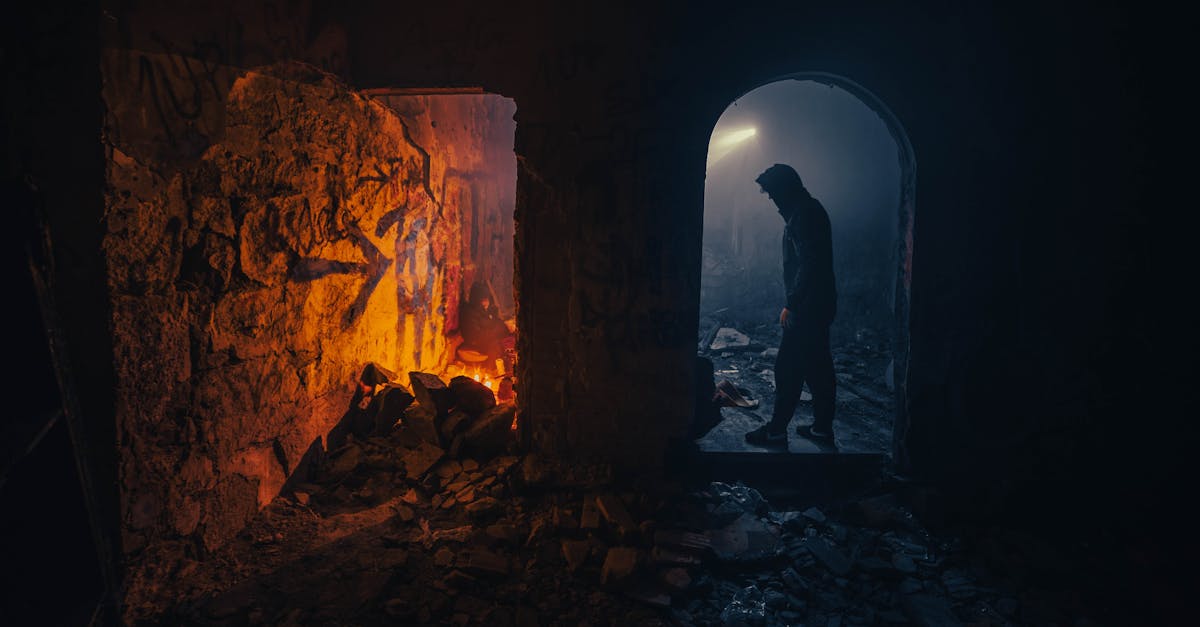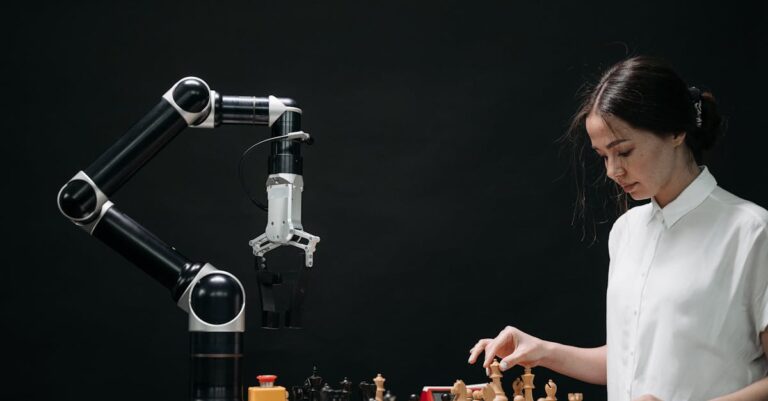
## The Clockwork Heart
The scent of roasting chestnuts and damp wool clung to the November air in Augsburg. Rain slicked the cobblestones, reflecting the flickering torchlight that illuminated the festival grounds. Old Man Tiber, his face a roadmap of wrinkles deepened by sun and smoke, adjusted the velvet drape shielding the stage. Behind him, I tightened a screw on Celeste’s neck joint. Not *the* Celeste, but her namesake—a figurine crafted from polished pearwood and silver wire.
She moved with a grace that defied her mechanics, a miniature dancer poised mid-twirl.
“Pressure’s good on the escapement,” I murmured, more to myself than anyone.
Tiber grunted. “Good enough for the Countess’s eyes, I trust?”
I didn’t answer. The Countess Isolde von Lichtenstein wasn’t a woman easily pleased. She demanded artistry, yes, but also… something else. A mirroring of her own stifled desires.
We were the Ōumioto – wanderers, puppeteers, clockmakers. Our reputation preceded us, whispered amongst the artisans and nobles of Europe: masters of automatons, weavers of illusions. But beneath the spectacle lay a different purpose. We didn’t just entertain; we nudged at the bars of cages unseen.
The air shifted, a coldness beyond the November wind. A figure draped in black velvet approached – Herr Schmidt, the Countess’s steward. His face held the polite rigidity of a well-trained hound.
“The Countess awaits,” he announced, his voice clipped. “Promptness is valued.”
Tiber nodded curtly and gestured me forward. He remained behind, meticulously checking the hidden mechanisms that powered our stage – a marvel of gears and counterweights disguised as a simple wooden frame.
I carried Celeste, cradled in the crook of my arm, toward the Countess’s tent. The interior was a study in muted opulence: dark tapestries, heavy brocades, and the scent of lilies. Isolde sat on a high-backed chair, her face pale against the crimson velvet. She was younger than I’d expected, barely thirty, but her eyes held a weariness that spoke of years spent in confinement.
“The Ōumioto,” she said, her voice a low murmur. “I have heard tales of your creations.”
I bowed, keeping my gaze lowered. “We strive to offer beauty, Your Grace.”
“Beauty is fleeting,” she replied, her fingers tracing the pattern of a silver bracelet. “I desire… resonance.”
She gestured to a small, raised platform at the center of the tent. “Show me what your figurines can do.”
I placed Celeste on the platform. The figurine’s eyes, crafted from polished obsidian, seemed to absorb the light, reflecting Isolde’s own dark gaze. I activated a hidden switch beneath the stage.
Celeste moved, not with jerky mechanics but with fluid grace. She danced a mournful waltz, her movements echoing the quiet desperation in Isolde’s eyes. But this wasn’t a simple performance. I had subtly altered the programming, incorporating principles of albedo physics – manipulating light and shadow to project emotive currents onto the surrounding space.
As Celeste twirled, faint images flickered on the tent walls – glimpses of wildflowers swaying in a meadow, a woman laughing freely by a stream, a ship sailing toward an open horizon. Subtle, ephemeral, but undeniably present.
Isolde’s breath hitched. Her hand tightened around her bracelet.
“Remarkable,” she said, her voice barely a whisper. “It’s as if…she understands.”
“Our creations reflect the emotions of those who observe them, Your Grace,” I replied carefully. “They are conduits.”
“Conduits?” She raised an eyebrow.
I hesitated. The true depth of our work was a secret closely guarded. We weren’t merely manipulating light and shadow; we were amplifying suppressed desires, chipping away at the walls of emotional restraint.
“They can… evoke forgotten feelings,” I offered, choosing my words carefully.
The performance continued. Celeste’s movements became more expressive, her dance evolving into a plea for freedom. I watched Isolde closely. Her face was impassive, but her eyes began to glisten with unshed tears.
Later, as we packed our stage, Tiber approached me, his face grim.
“Schmidt was asking questions,” he said quietly. “About the mechanics. About where we learned our craft.”
“He’s curious,” I replied, tightening a bolt on one of the gearboxes.
“Curiosity can be dangerous,” Tiber warned. “Especially when it comes to something they don’t understand.”
“We’ve been careful,” I said. “The albedo principles are hidden within the programming. The true nature of our work remains a secret.”
“For now,” Tiber said, his gaze sweeping the festival grounds. “But whispers travel. And there are those who would see our work suppressed.”
The next day, a man approached me – Johann Kepler, the Imperial Mathematician. He wasn’t interested in our artistry; he was fascinated by the intricate clockwork mechanisms that powered our stage.
“Remarkable precision,” he said, examining one of the gearboxes with a critical eye. “The escapement is unlike anything I’ve ever seen.”
“We strive for perfection, Herr Kepler,” I replied carefully.
“Perfection is an illusion,” he said with a wry smile. “But the pursuit of it can lead to extraordinary discoveries.”
He questioned me relentlessly about our techniques, probing for the secrets of our craft. I deflected his inquiries as best I could, offering vague explanations and technical jargon. But I could sense his intelligence – he wasn’t easily fooled.
“I understand you are also interested in the study of optics,” he said casually. “The manipulation of light and shadow.”
My blood ran cold. He knew more than he let on.
“It is a minor interest, Herr Kepler,” I replied coolly. “A mere curiosity.”
He smiled again, his eyes glinting with intelligence.
“Curiosity is a powerful force,” he said. “It can unlock the secrets of the universe.”
That evening, Tiber approached me with a grave expression.
“Schmidt has hired a locksmith,” he said quietly. “A skilled one. He wants to examine our stage, discreetly.”
“They suspect something,” I said grimly.
“More than suspect,” Tiber replied. “They’re afraid.”
We spent the night dismantling our stage, concealing the intricate mechanisms that powered it. We replaced the albedo projectors with simpler devices, stripping away the subtle emotive currents that amplified suppressed desires. It was a betrayal of our purpose, but we had no choice. We needed to protect our secrets.
The next morning, the locksmith arrived – a burly man with calloused hands and suspicious eyes. He examined our stage meticulously, probing for hidden compartments and examining the intricate gears with a critical eye.
I watched him closely, my heart pounding in my chest. He didn’t find anything.
“Solid work,” he said finally, wiping his brow with a handkerchief. “Nothing out of the ordinary.”
He left without suspicion and we quickly packed our belongings, preparing to leave Augsburg.
As we traveled toward Nuremberg, Tiber spoke of a hidden network of artisans and clockmakers – individuals who shared our beliefs and supported our work.
“We are not alone,” he said quietly. “There are others who seek to unlock the secrets of emotion and freedom.”
“What about Kepler?” I asked.
“He is a dangerous man,” Tiber replied. “His curiosity knows no bounds.”
“Do you think he suspects our true purpose?” I asked.
“Perhaps,” Tiber replied. “But even if he does, we have allies who can protect us.”
We reached Nuremberg and found sanctuary in a hidden workshop owned by an aging clockmaker named Hans. He was a master of precision and subtlety, with a deep understanding of mechanics and optics.
“I have heard tales of your creations,” he said quietly. “The puppets that awaken forgotten emotions.”
“We strive to offer beauty and resonance,” I replied.
Hans smiled knowingly. “You do more than that,” he said. “You chip away at the bars of cages unseen.”
He offered us a safe haven and shared his knowledge, teaching us new techniques and providing access to rare materials.
“The key is the albedo principle,” he said. “Manipulating light and shadow to unlock the hidden currents of emotion.”
We spent weeks refining our techniques, incorporating Hans’s insights into our designs. We created a new automaton – a miniature violinist crafted from ebony and silver.
“This one is different,” I said quietly. “It’s more powerful than anything we’ve ever created.”
“Indeed,” Hans replied. “It has the potential to awaken something profound.”
We learned that Kepler was on our trail, investigating rumors of a hidden network of artisans.
“He suspects we are involved,” Hans said grimly. “We need to be careful.”
We decided to use the violinist as a test – a subtle act of liberation in a nearby town. We performed for a wealthy merchant and his wife, subtly amplifying the suppressed desires of his emotionally restrained spouse.
The effect was immediate – a flicker of rebellion in her eyes, a subtle shift in her demeanor.
“Remarkable,” the merchant said casually. “The music is quite… captivating.”
As we packed our belongings, a figure approached us – Johann Kepler himself.
“I have been searching for you,” he said coldly. “The Ōumioto.”
He drew a pistol, aiming it directly at us.
“I know what you are doing,” he said. “Manipulating emotions, inciting rebellion.”
“You misunderstand our purpose,” I replied calmly.
“I understand perfectly,” he said. “You are dangerous revolutionaries.”
He pulled the trigger.
The shot rang out, echoing through the narrow streets of Nuremberg. But it wasn’t directed at us. Hans stepped in front of me, taking the bullet meant for my heart.
He collapsed to the ground, clutching his chest.
“Run,” he whispered, his voice barely audible. “Protect the secrets.”
Kepler advanced toward us, his eyes blazing with fury.
“You won’t escape,” he said coldly. “I will expose your lies.”
But we didn’t run. We fought back, using our knowledge of mechanics and optics to disarm him.
We created a distraction – a blinding flash of light, a deafening roar of sound. Kepler stumbled backward, momentarily disoriented.
We seized the opportunity to escape, fleeing into the labyrinthine streets of Nuremberg.
As we ran, I realized that our work was more than just artistry; it was a rebellion against the forces of oppression.
We were wanderers, puppeteers, clockmakers – masters of illusion. But we were also warriors, fighting for a world where emotions could flourish and freedom could reign.
The journey ahead would be dangerous, but we were ready to face it. We had secrets to protect and a world to liberate. The clockwork heart of rebellion beat strong within us, driving us forward into the unknown.


